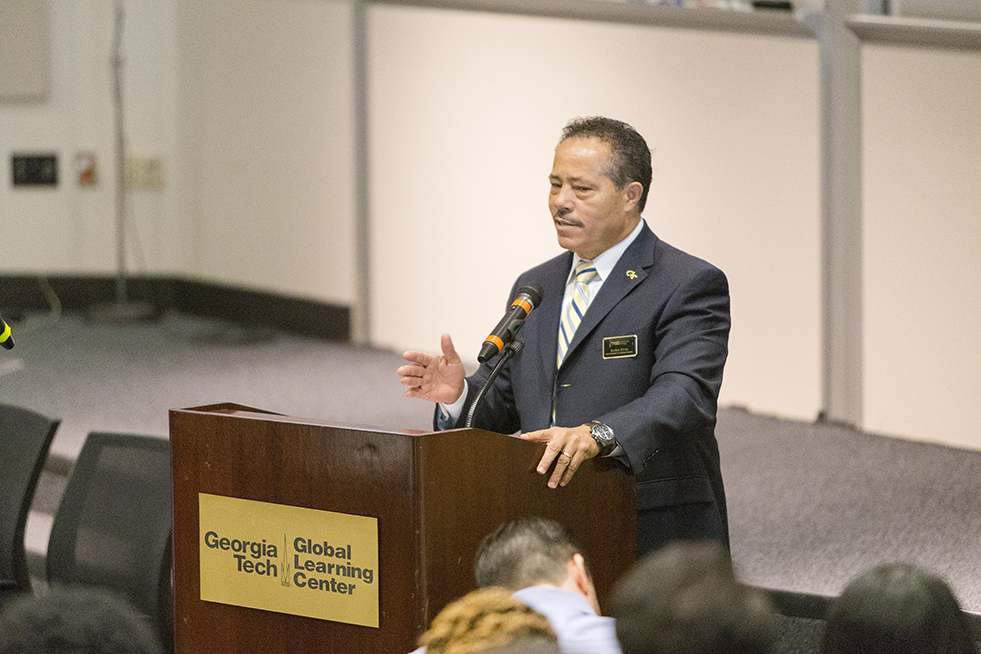The value of campus inclusivity were reaffirmed this past week at the seventh annual Diversity Symposium. The series of lectures dealt with matters of demographic change, equity in hiring and creating a positive climate for diverse individuals on campus and in the workplace as part of Tech’s aspiration of diversity. “The Georgia Tech strategic plan is that we would seek to create a campus community that values collegiality, respect, civility, and embraces diversity in all its forms,” said Archie Ervin, PhD., Georgia Tech Vice President for Institute Diversity. “We know that by doing that, we are a richer community, and in fact a more vibrant one, when we have that kind of diversity at Georgia Tech.”
The event started with a lecture by James Johnson PhD. of the University of North Carolina on demographic changes in America and their influence on higher education. Included in the talk was a discussion on recent trends of immigration and an aging workforce as well as analysis of minority representation in different areas compared with academic performance.
Following this was a panel discussing the enhancement of hiring equity in the workplace. The panel consisted of Georgia Tech professors who are members of NSF ADVANCE, a program whose goal is an increased number of women in the fields of science and engineering.
During the luncheon of the event, individual professors, students and staff members were recognized for contributions to campus diversity. Some of the achievements recognized during the meeting were the creation of the Society of Women in Physics by Andrea Welsh, time served on the Diversity Affairs Committee by Alex Berry, and the creation of safe spaces for LGBTQIA individuals in residence halls by Matt Hall.
The luncheon was also the venue for Marc Morial, the guest speaker, who served as the mayor of New Orleans between 1994 and 2002. Morial outlined his vision for a new definition of civil rights in the 21st century, emphasizing that a plan for the future must be founded on an awareness of inequality in America and the sacrifices made to combat. He recommended a plan for civil rights based on three D’s — the first being to defend democracy, such as in combatting unfair voter laws. The next was to develop human capital, where Morial spoke about the necessity of making college accessible and affordable to all. The final ‘D’ was for demanding jobs, which he expounded as a demand that needs to be made by both influential business and political leaders to create jobs with liveable wages.
As Dr. Ervin explained, the event helps to address the topic of diversity not only as a value for Tech itself, but to help students learn how to approach it once they graduate. “Navigating difference, that is, properly understanding how to engage it and take it for what it is, is a strength, is an asset,” said Dr. Ervin. “There are very few things that you’re going to do after Georgia Tech where you’re going to be able to work in a homogenic society. We’re preparing our students for the future, and I think an important part of that is preparing them for the diversity that the world has to offer.”
